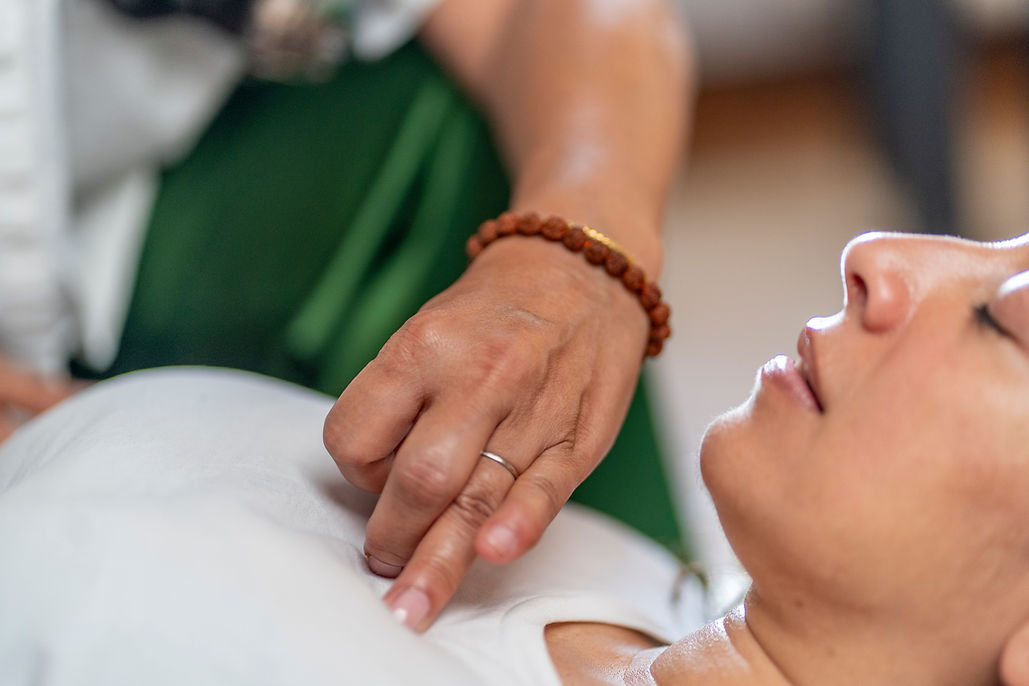What is Breathwork?
Breathing is the only system in the body that is both completely automatic and also under our control, so learning how to breathe effectively can become an easy and fast way to regulate the body and balance the mind. Test it yourself now! Wherever you are reading this, pause for a moment, then inhale through your nose slowly, softly for 5 counts and then exhale for 5 counts. If you can, repeat 5 more times.
Feel any different?
Breathwork has fast gained in popularity because more and more people are realising for themsleves the transformative power that has been right under their nose all along.
However, it can be confusing to know which breath method is best suited to you and your life experience. You may have heard of functional breath, coherent, conscious connected or circular and diaphragmatic breathing. Many newly adapted versions of breathwork have their developmental roots in the ancient practice of pranayam which is closely associated with yoga. Whatever modality you are drawn to, it is vitally important to understand the relationship you have with your own breath. This is where I come in to support you. I am certified in several breath modalities and able to draw on a wider range practices that I myself use daily or consistently.
Whether you need to learn how to calm down or activate your nervous system or whether you are ready to experience an expansion of your consciousness, the ability to remain aware of the breath as you go about your day, is truly life changing.
Breathing is also a whole body-mind experience. While the diaphragm and lungs are crucial components in breathing, the brain also holds a vital role in regulating breathing patterns. For example, if a stress reaction exists in the body and then becomes habitual, the body and your breathing pattern sends signals to the brain that the stress is still present, even if the stress event had ended. Thoughts, emotions and behaviours are stimulated as the brain becomes hyper-vigilant for potential stressors, flooding the body with stress hormones such as adrenaline and cortisol to prepare itself for exertion and action. Left unchecked this state leads to a wide range of physiological and emotional imbalances.
In 2017, a study published in the journal Frontiers in Psychology reported participants completing 20 breathwork sessions over eight weeks, experienced relaxation and significantly reduced their levels of the stress hormones, adrenaline and cortisol, compared to those who did no breathing sessions.
Consider the statistics: most adults only use 33% of their total respiratory capacity and the lungs lose 12% of capacity from the age of 30 to 50 years, with women fairing far worse than men. We’re forced to breathe harder and faster, a breathing habit that has been scientifically proven to lead to chronic health problems including cardiovascular disease, high blood pressure and fatigue.
Benefits of breathwork:
-
Alleviate and resolve: sleeplessness, chronic pain, and respiratory dysfunctions including asthma.
-
Boost and detox: immunity, energy, circulation and lymphatic drainage.
-
Dissolve and integrate: fears and anxiety, stress, depression and trauma.
-
Expand: serenity, human and spiritual connection, creativity, mental clarity and intuition.
.png)


